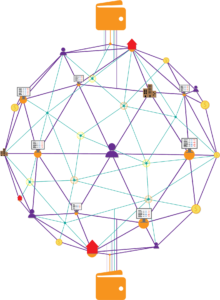Blockchain Penetration Testing FAQs
A blockchain is a decentralised ledger that records all transactions that take place on a peer-to-peer network. Participants can confirm transactions using this technology without the need for a central clearing authority. Potential applications include fund transfers, trade settlement, voting, and others.
Since their beginnings, blockchains have been widely marketed as “secure, dependable, and immutable.” These implied benefits are not without merit—blockchain uses asymmetric keys to encrypt and decrypt content, ensuring high levels of authentication and nonrepudiation.
However, hackers continue to steal billions by exploiting common flaws such as a lack of multi-signature, low-security hot wallets, poor input validation, insider threat issues, among other vulnerabilities.
A penetration test can help in the development of a stronger security posture as well as the detection of potential flaws that may have remained hidden in the past.
While many blockchain companies place a high value on security, each vulnerability must be thoroughly examined.
Gridware uses an on-demand, personalised approach to meet your system’s specific security needs.
We understand that penetration testing isn’t a one-size-fits-all solution, which is why our pen testing is carried out by security experts with years of experience securing blockchains, cryptocurrencies, and centralised and decentralised apps.
Cloud security audits should be conducted by an external service provider to maintain zero bias throughout the penetration testing process. It also ensures that the audit is run independently from the business by technical experts who are familiar with the latest developments in blockchain technology.




